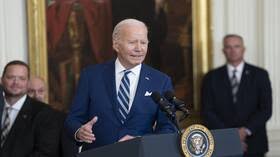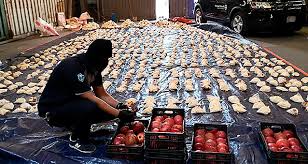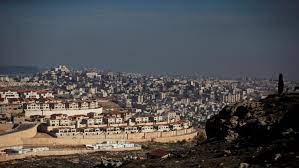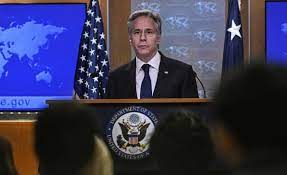Report: Lebanon suffers severe economic crisis due to debt accumulation

Alanbat - Sarah Omat
Lebanon is experiencing a severe economic
crisis after debt accumulated over successive Governments 30 years ago without
achieving achievements amid excessive spending.
Perhaps the most serious situation in Lebanon's economy has
been the paralysis of banks since 2019, which is the most detrimental to daily
transactions and services.
In addition to the
unprecedented collapse of the national currency, which has lost more than 90%
of its value, the negative repercussions of this collapse on the various
health, educational and commercial sectors, the most important is the decline
in the purchasing power of citizens, more than 70% of whom are below the
poverty line.
According to the
economic report prepared by the National Information Agency (NIA), for the
Federation of Arab News Agencies (FANA), "After Lebanon's first place in
tourism, education, medicine and others, the first ranks in terms of inflation,
economic collapse, hunger and others are taken over".
But hope still fondles the resilient Lebanese and those who
cling to their homeland. This is reflected in the large influx of expatriates
during the summer and holidays, who contribute to revitalizing the tourist,
commercial and economic sector through their hard currency into the country.
Lebanon's Council of Ministers sought to address and exit
the crisis, most notably the signing of a preliminary agreement with the
International Monetary Fund (IMF) to obtain a $3 to $ 4 billion aid program,
which required the final agreement to implement eight reforms, most notably
"Capital Control", the restructuring of banks, and the rebalancing of
the financial sector, but unfortunately only the law amending bank secrecy and
approving the 2022 budget has been passed so far.
The Government has also prepared an economic and financial
recovery plan that has not yet seen the light of day. In this context,
economist and financial expert Dr. Bilal marks a talk with the National Media
Agency (NIA) Savings owners were unable to withdraw their money after the crisis
prevented them from their accounts in US dollars or were told that the money,
they could now withdraw was only a small fraction of their original value, and
the currency collapsed, pushing a large part of the population into the ranks
of the poor.
He added, "The severe economic crisis began in 2019
when the financial system collapsed under the weight of sovereign debt and
unsustainable ways in which it was financed while politicians have yet to come
up with a clear-cut and actionable bailout."
He added that Lebanon's economy has become in the midst of
collapse for a number of reasons that may start with poor governance and not
end with a debt crisis that has been exacerbated by the political crisis and
the coronavirus pandemic.
Public debt amounted to more than 175 per cent of gross
product, one of the world's highest indebtedness rates at a time of high
inflation rates near Lebanon's first place globally, in addition to "The
bombing of the era - the bombing of the port of Beirut on 4 August 2020, which
hit the Beirut port movement at heart and caused enormous losses at the human,
stone and economic levels.
Over the past three decades, Lebanon's economy had relied on
tourism and services, primarily financial services. Since the end of the civil
war at the end of the 1980s, following the adoption of the Taif Constitution,
which had ended 15 years of absurdity, Lebanon had been unable to reactivate
its productive sectors, such as agriculture, light manufacturing and various
handicrafts. Since 2010, government policies of successive governments in
Lebanon had tried to find some solutions to activate the food industry and some
artisanal work, but all of those attempts had been hampered by, inter alia, the
inability to stimulate the said sectors and the inability to secure the
necessary infrastructure.
Lebanese live today with anxiety and suspicion, and carry
them to a new peak of a dramatic collapse that has not subsided since autumn
2019.
This collapse began to appear years ago, precisely since
2015. and are busy with their living conditions, after the collapse of the lira
at the beginning of 2023 reached a shocking level United States dollar exchange
rate exceeded LS 145 thousand last January, the citizen is awaiting revelations
at several levels after becoming certain that all attempts and rescue plans
prepared or discussed have become past and unenforceable or will not see the
light of day.
As for the fate of negotiations with the International
Monetary Fund (IMF) to obtain a $3-4 billion aid program at a time when its
required terms have not been implemented s Office ", which is increasingly
complicated by the nine-month presidential vacancy following the expiration of
former President Michel Aoun's term of office, Parliament's inability to
legislate and the narrow limits of the powers of the caretaker Government, In
addition to exacerbating political differences and stakeholders' conflicts on
how to emerge from the crisis or at least on how to stop the collapse and
deterioration.
According to a sign that Lebanon's political authority
appears to have favored denying rather than going to address financial and
economic crises, it has postponed reforms and the adoption of necessary and
necessary laws.
He revealed that a fiscally overstretched Lebanon was
awaiting several economic entitlements this year to further inflation.
Lebanon's officials looked forward to a recovery plan and a program with the
International Monetary Fund (IMF) that would bring the country out of crisis.
All plans to recover and emerge from crises were postponed, including an
agreement with IMF.
Over the past year, Lebanon has recorded 2022 worst decline
in its history, with inflation in the country at more than 1400 per cent since
the start of the economic crisis in 2019, while the Lebanese pound continues to
register a record drop against the dollar. Against this deterioration, the
incapacitated government is still seeking to launch a plan "Economic
recovery", through fiscal measures and legislation aimed at boosting
growth and reducing the deficit in a country that imports 80% of its needs from
abroad.








